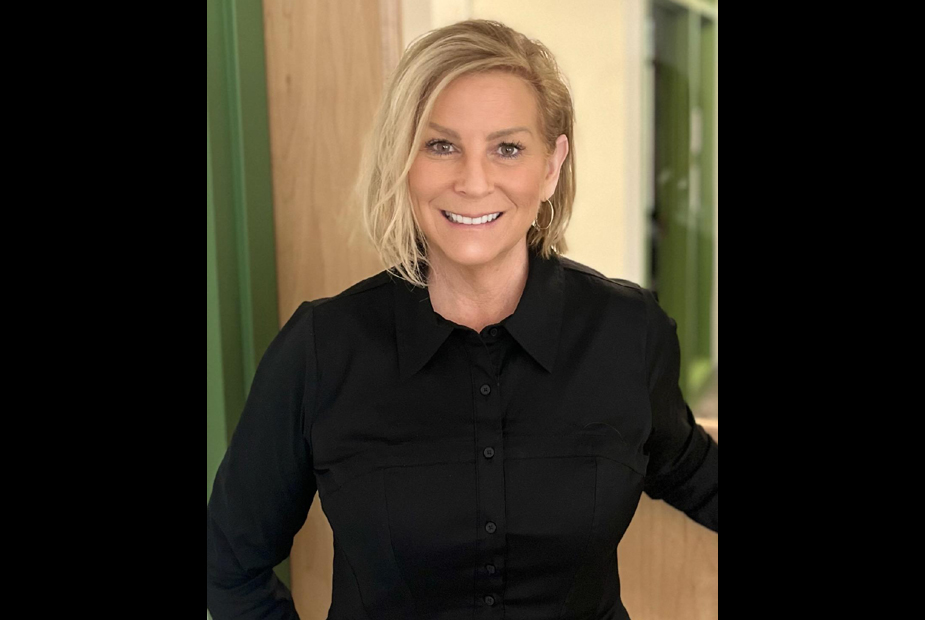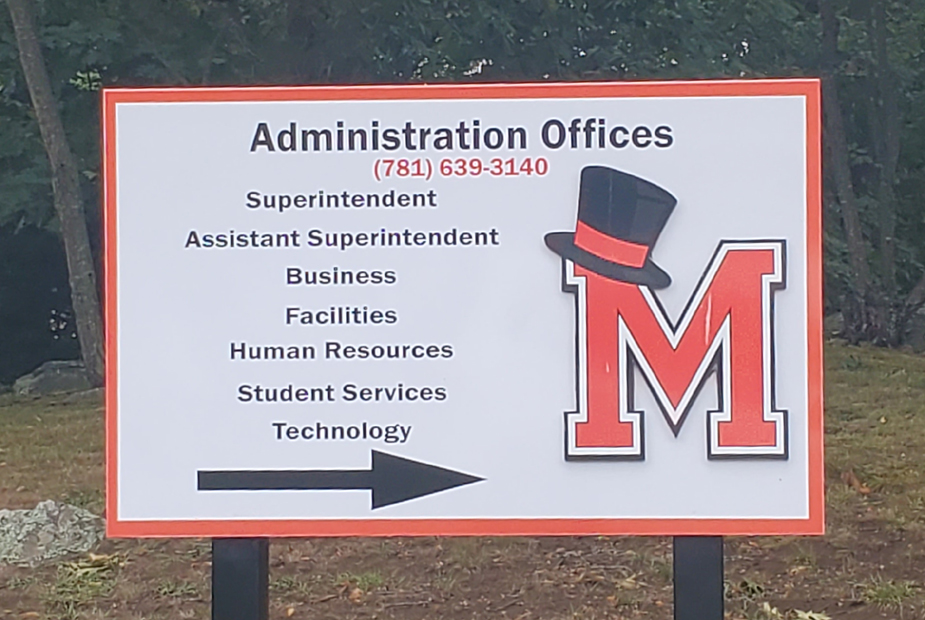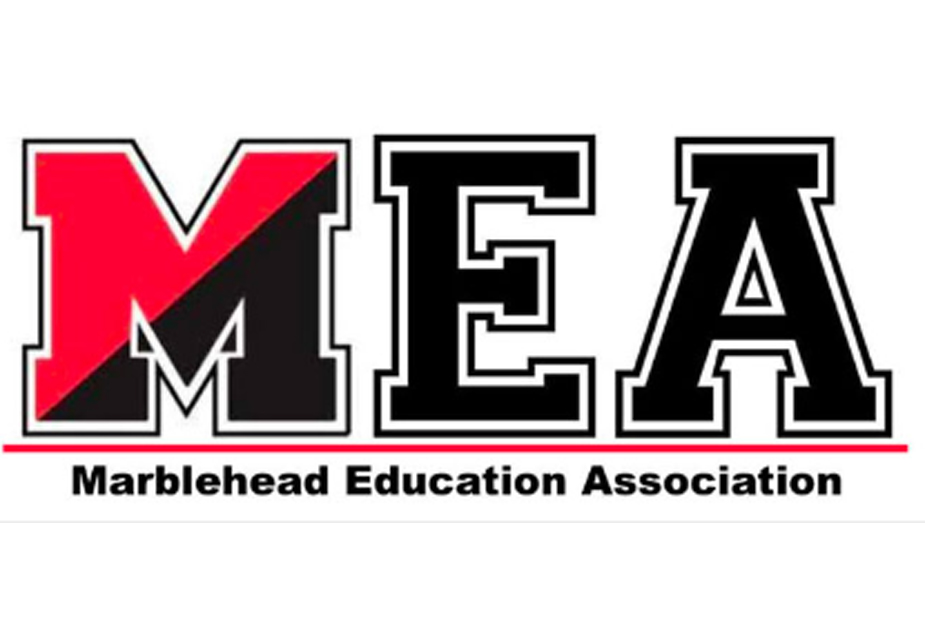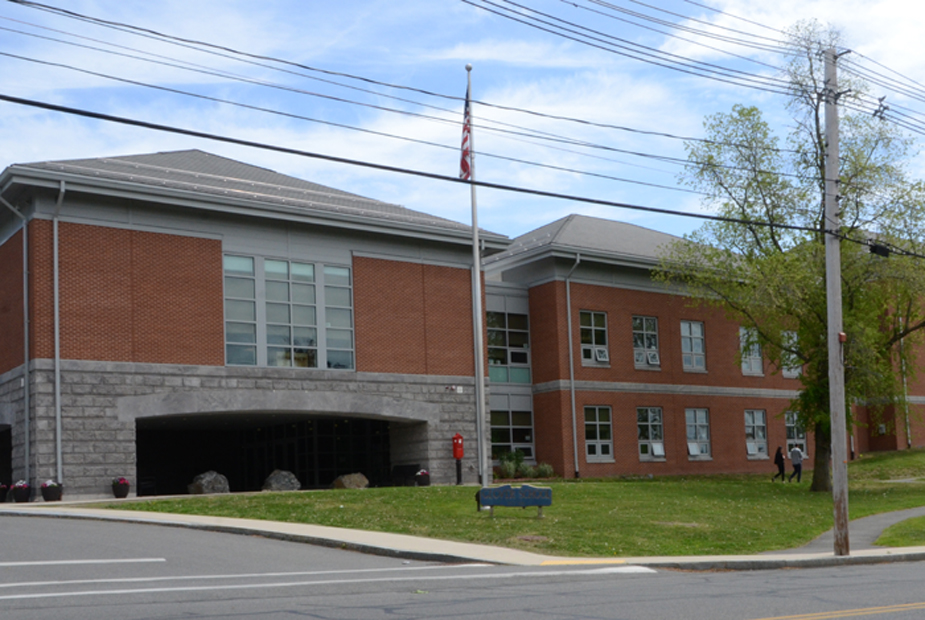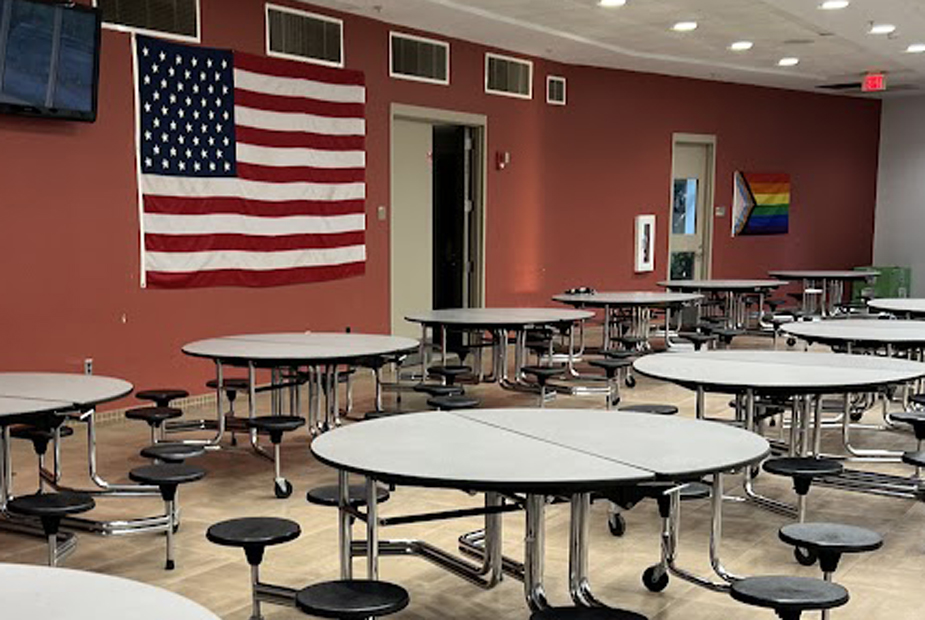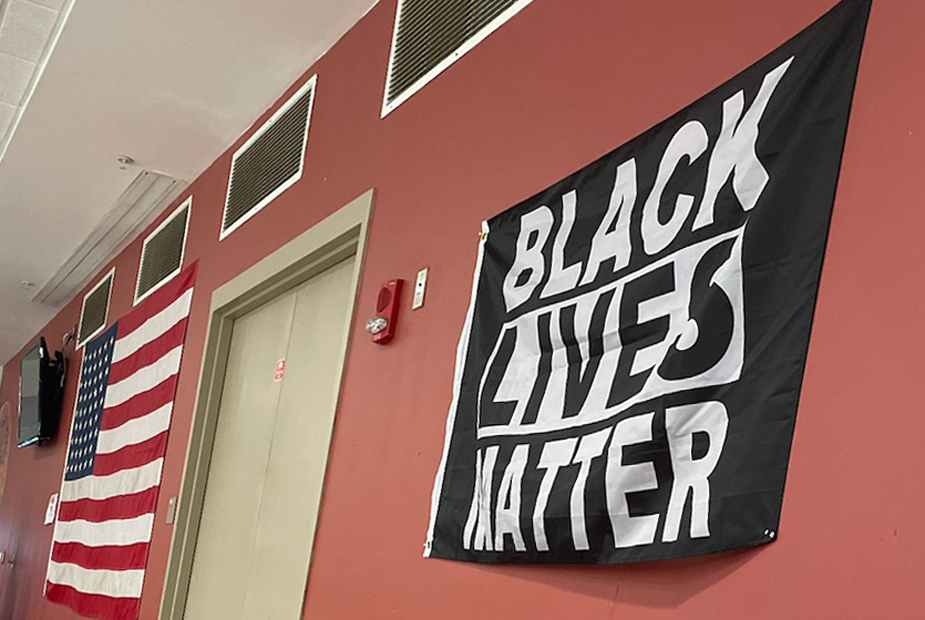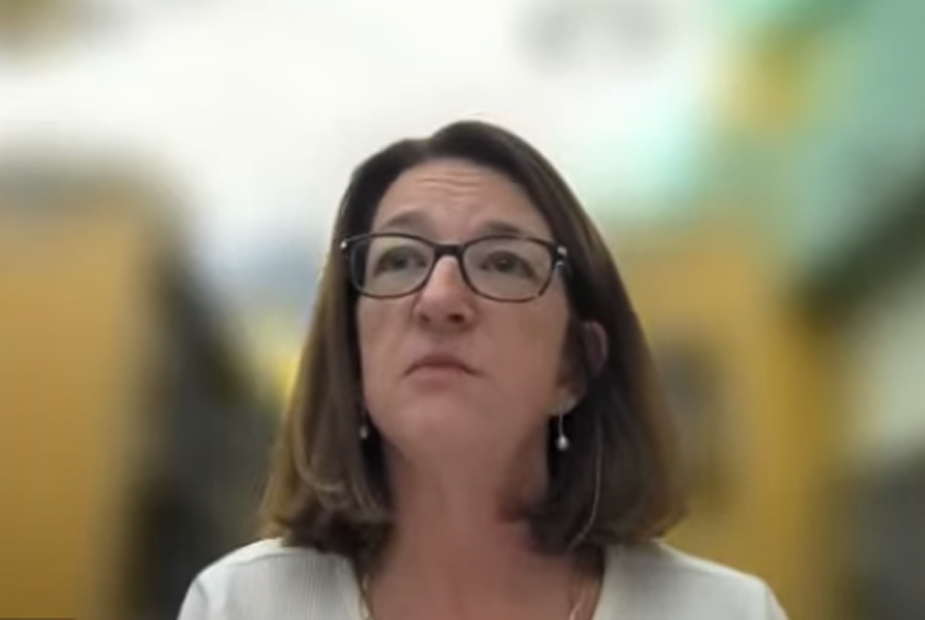McGuinness Takes the Lead: Her Vision for Marblehead's Schools
Theresa McGuinness—familiar to many Marbleheaders from her time as Village School principal—returned to Marblehead this week to assume the position of interim superintendent of schools.
While originally interviewing with the School Committee, McGuinness regularly referenced a few core themes—trust, communication, transparency, and analysis—that she said would guide her transition into her new role.
On Sunday, November 5th—the day before her official start date—Marblehead Beacon sat down with McGuinness to talk about these themes, the path she has followed in her career, and her plans for Marblehead’s schools going forward.
McGuinness’s career in education has spanned virtually every grade level and every aspect of teaching—from direct classroom instruction to the guidance office to administration and curriculum development.
Her first job post graduation was as a microbiology lab technician, she tells Marblehead Beacon. “I loved science and the microscope,” she says, “but, to be honest, it was a relatively boring job.” So, after just a year, she decided to return to school to obtain a master’s degree to teach high school biology. This proved to be a much better fit, she says, though her first teaching job—as a student teacher at Nashua High School—turned out to be a bit of a trial by fire. “On Labor Day weekend, the co-teacher I was supposed to work with took a job in the technology industry,” she says, and McGuinness found herself with an instant promotion. “I hadn’t taught a day in my life,” she says with a laugh, but she took on teaching anatomy and physiology to seniors and biology to sophomores and was pleased to discover that, “I loved it; I really loved it.”
After seven years as a classroom teacher, McGuinness obtained a second master's degree and worked for five years as a middle school guidance counselor and then for several more years as a high school assistant principal.
It was at this point that she made the transition from New Hampshire to Massachusetts. “I found what they were doing and learning [in Massachusetts] appealing and so different,” she explains, “just in terms of the standards, and the data they used.” A focus on data, and the use of rigorous statistical analysis to guide educational decision making, would become a regular theme of McGuinness’s work going forward.
After five years as an assistant principal and later a principal in Andover, Massachusetts, McGuinness accepted a fellowship at Boston University to study for her doctorate and eventually, while still completing her doctoral research, accepted a position as the principal of the Marblehead Village School.
McGuinness notes that she accepted the job without ever having set eyes on Village and, when she first had the opportunity to visit, immediately loved everything about the place. “It is so special,” she says, “the people, the construction of the building, just everything.”
After four years in Marblehead, McGuinness left to become Watertown’s assistant superintendent of teaching, learning, and assessment. The past seven and a half years, she says, have been an incredible learning experience. But, when the possibility of returning to Marblehead became available, it was not an opportunity she wanted to pass up.
As Marblehead Beacon has previously reported, the superintendent position in Marblehead opened up when the School Committee reached a resignation agreement with former superintendent John Buckey over the summer. Since that time, Michelle Cresta—Marblehead’s assistant superintendent of finance and operations—has been serving as acting superintendent. Cresta has publicly stated that she does not wish to take on the superintendent role permanently, as she prefers the work involved in her alternate role.
McGuinness—though she has been hired as an interim—clearly stated from the beginning of the application process her interest in applying to assume the role on a permanent basis. McGuinness’s interim contract extends through the end of the 2023-2024 school year. The School Committee has not yet indicated the timeline or process for initiating a permanent superintendent search. McGuinness was previously a finalist for the superintendent position in Marblehead in 2020, when the School Committee ultimately offered the position to Buckey instead.
McGuinness explains that she had originally planned to simply apply for the permanent position, but she realized in a middle of the night brainstorm—often when she does her best thinking, she says—that waiting could mean forfeiting the position entirely in the event that Marblehead hired an interim who ended up staying. So she decided to take the leap, she says, and feels “honored to be able to have the opportunity.”
Asked whether there were any issues with leaving her role in Watertown during the middle of the school year, she notes that with her long tenure there, she feels confident that she has left a robust administrative framework that will allow them to function smoothly until a replacement is hired. Watertown Superintendent of Schools Deanne Galdston noted in a press release about McGuinness’s departure that, “We could not have asked for a better partner over the years, and we are grateful for all that she has done for our schools.”
McGuinness took some time during our conversation to discuss her philosophical approach to teaching, particularly with regard to finding the appropriate balance between providing guidance to teachers and allowing them to implement their own unique approaches. “The way I look at it,” she says, “is that there is an art and science to teaching.” The artistic part is based on an individual teacher’s passion and experience and his or her ability to make choices to engage students and ensure that the material is relevant to their lives, she says. But, while autonomy is important, there also needs to be accountability, and this is where the science part comes in. It involves looking at the data and evaluating programs on the basis of evidence and outcomes.
With regard to Marblehead’s newly adopted English Language Arts program—Wit and Wisdom—McGuinness stresses that it will be essential to have evaluation tools in place. She has already researched some options, she notes, that will enable the schools to conduct both mid-year and end-of-year assessments that will then be presented to the School Committee and shared with the public. Once again, McGuinness emphasizes the importance of understanding the data and breaking it down as much as necessary to have a complete understanding of what is working well, and what isn’t. With regard to student outcomes, she says, “there are pockets of growth and good areas and there are other areas that are in need of improvement.”
Teachers, McGuinness says, play the most important role in ensuring the best possible educational outcomes, but parent involvement and insights are also critical. Parents are essentially “the owners of the schools,” McGuinness notes, not so much in terms of telling teachers how to teach, but in terms of providing top-level input into their children’s education.
These are challenging times, McGuinness acknowledges, not just within schools but in the world more broadly. “People are splintered,” she says, “it is divisive at times, and so it becomes incumbent on us as school leaders to decide with staff: What is it that we believe in? What are our expectations? And how will we handle it when things go awry?” And then, she says, we need to share that information with the community. “Transparency and agreement are not always the same thing,” she says, “but you have to have a rationale for what you are doing. You have to be able to say that the data show this and this, and therefore we came to this conclusion.”
This also comes into play with regard to teachers’ management of difficult topics in the classroom. McGuinness explains that, while in Watertown, she developed a controversial-topics policy with guidelines to help teachers and students learn to “have difficult conversations but in respectful ways” and prevent approaches that might indoctrinate students in specific political leanings or belief structures. Above all, she says, we want to “open kids up and develop their higher-level thinking skills.”
McGuinness notes that discipline today is different than in the past. Asked whether the proverbial “losing recess” option still exists at the lower grade levels, she answers firmly in the negative. “One of the ways we tackle discipline,” she says, “is positive behavioral interventions and supports, or PBIS.” This means that systems are in place both for academic outcomes and for behavior, and they are documented and shared with parents, so there is a partnership in helping to morph a child’s behavior in a positive direction.
McGuiness’s start date coincides with a period of time that has been marked by a number of controversies in Marblehead, significantly with regard to the departure of the former superintendent of schools but also surrounding a variety of other topics including the school budget, elementary school recess, in-school vaping, book bans, the relative percentage of ARPA funds distributed to the schools versus other town needs, the school’s response to the Hamas attack on Israel, the ultimate fate of the Coffin School property, and the display of a Black Lives Matter flag at Marblehead High School.
But McGuinness expresses confidence in her ability to transition toward a more positive direction through open communication and transparency with teachers, staff, students, parents, and the broader community. And, she notes, when there are disagreements, rather than any stakeholder rushing to issue a public condemnation or to post an angry message on social media, she would like to see people start by communicating their concerns in a respectful way directly to the individuals involved. “What would be good,” she concludes, “is if we could all give each other a little bit of grace.”
Editor’s note: School Committee member Jenn Schaeffner is a Marblehead Beacon founder and editor. She is recusing herself from Marblehead Beacon’s coverage of the School Committee and anything pertaining to Marblehead Public Schools.

